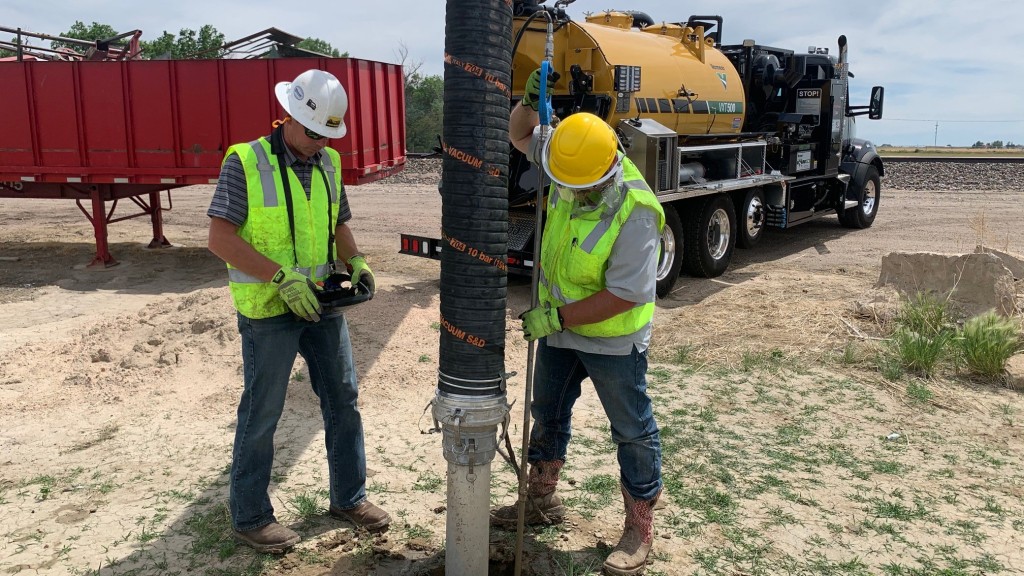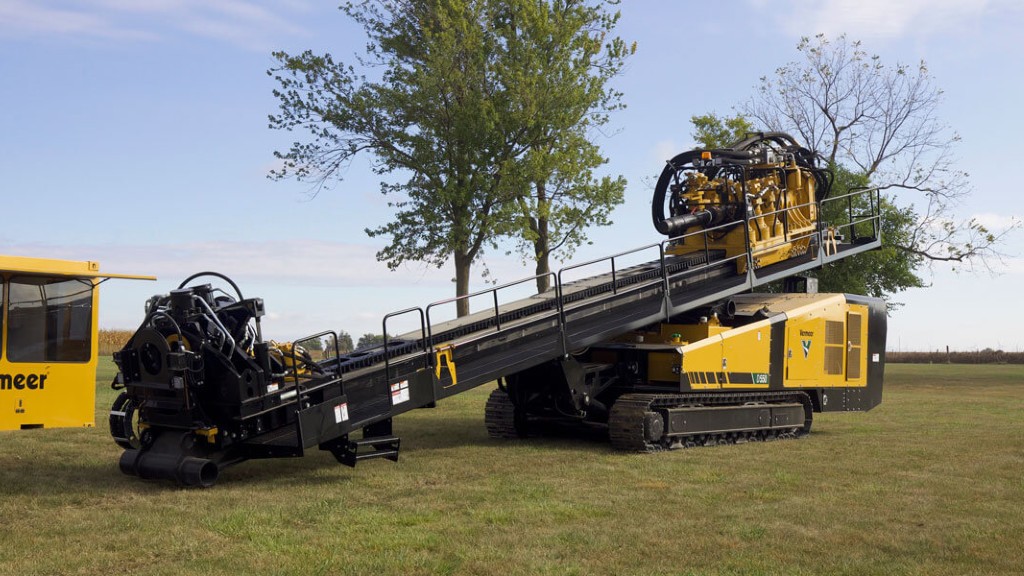How to choose the right vacuum excavator for municipal applications

Whether potholing and managing slurry in horizontal drilling operations, digging holes for signpost footings, cleaning up catch basins, assisting with water main breaks or performing a myriad of other tasks, municipalities have discovered the benefits of adding a vacuum excavator to the fleet. These multi-use tools use a soft-digging process that combines suction and high-pressure water or air to remove soil from the ground. This makes the vacuum excavator ideal for digging in sensitive applications where there may be existing utilities.
Once the decision to add a vacuum excavator to a fleet is made, municipalities must turn to the selection process. Choosing the right vacuum excavator is not easy with all the different options available. Vermeer provides a comprehensive suite of vacuum excavation technology to meet the diverse needs of any municipality. Options extend from skid-mounted to trailer to truck-mounted vacuum excavators. There are also jetters for clearing clogged pipes, valve exercisers and hydraulic booms for ease of operation. But how do you determine the best configuration to supplement your operations?
First, consider any job site limitations. "Selection is often determined by the restrictions facing the municipality, whether that's being overweight, licensing or even the type of soil they're going to be in," said Sean Montgomery, Vermeer RDO Hydrovac Specialist for California.
The need for commercial driver's licenses may be a concern for municipalities; in those cases, it's important to consider the weight of the truck as well as the size of the spoil tank to be carried.
Consider the pros and cons of trailers versus trucks
One of the first considerations is whether you want a truck-mounted or trailer vacuum excavator. Trailers allow the vacuum excavator to be unattached from the truck and left on the jobsite.
Many municipalities use trailer vacuum excavators. "The majority of trailer vacs we sell to municipalities are straight hydro-excavators with no additional accessories. The trailers typically include a hydraulic boom," said Montgomery. "Municipalities can clean catch basins; they can expose their own meters. They can do their own maintenance without having to hire it in or bring in a large truck that will consume more road space and require flaggers on the site."
Trailers with jetters to clear pipes are popular for smaller municipalities. "Typically, they run a small 500-gallon (1,892.1-L) vac with a jetter option on it," said Montgomery. These trailers are often fitted with valve exercisers. "We see more use of that feature. Municipalities are buying 500-gallon to 800-gallon (1,892.1-L to 3626.9) units to do their own meter replacements and change their own valves. It's an all-in-one unit for them."
Trailer vacuum excavators allow a wider diversity of operators. "With the truck units, one or two operators typically run the vac for its entire life," said Montgomery.
Whether you're pulling a trailer or using a truck-mounted vacuum excavator, you need the right size of truck to comply with weight regulations when the tank is full.
With the trailer units, Montgomery always asks what you're going to tow it with. "There's a common misconception that an 800-gallon (3,028.3-L) vac can be towed with a 1-ton (.9-mT) truck." Once the weight restrictions are explained, most municipalities end up with a 500-gallon (1892.7-L) vac with a boom rated for under 10,000 pounds (4,535.9 kg).
"Many large municipalities run jetter combo trucks because they want to be able to use the truck for multiple applications," said Montgomery. "Depending on the size of the municipality, weight is always a factor because of licensing. I have quoted multiple units on the Ford 650 chassis because they're under 26,000 pounds (11,793.4 kg) GVW, so they don't have to have a Class A driver."
Finding qualified drivers is a challenge for every industry, and offering a jetter option on a truck that comes in under weight limits benefits small municipalities. Bigger municipalities may have a whole crew dedicated to water. They will have teams dedicated to sewer work. This requires multiple trucks. "With the smaller municipalities, it's been more prevalent to sell a jetter combo because they want to be able to pothole with it and perform utility tasks, but also have the option if they need to jet," said Montgomery.
Consider skid mount self-powered versus PTO-driven machines
Vacuum excavators are available in PTO-driven or skid mount self-powered units. If you're buying a small- to mid-sized vacuum excavator, choosing a vacuum excavator with its own motor is likely more economical. A PTO or transfer case setup is probably your only option for larger vacuum excavators due to the power needed to drive the vacuum system.
Vermeer HTV and JTV PTO series vacuum excavators are PTO driven. The main difference is that the JTV units come with a jetter. Vacuum excavators can be used to clean gravel and dirt out of storm catch basins. "A large municipality may buy an HTV truck just for doing catch basic cleanouts," said Montgomery.
Consider diesel versus gas
Diesel will continue to be the dominant fuel source for quite some time, but there are instances when the municipality should investigate the use of gasoline as an alternative. Some urban areas will offer incentives for the use of gas versus diesel.
"The vast majority of truck and trailer vacs are diesel operated due to the prevalence of the fuel onsite and the longevity of diesel engines, but there are situations which favor gasoline use," said Montgomery. The last consideration should be tailoring the units for your job sites. The most common options include the LED arrow board on the back, a hydraulic jack that alleviates any effort needed cranking the hitch on and off trucks, and a hydraulic boom that makes operation a one-person job.
Jason DeWitt is a regional sales manager with Vermeer.



